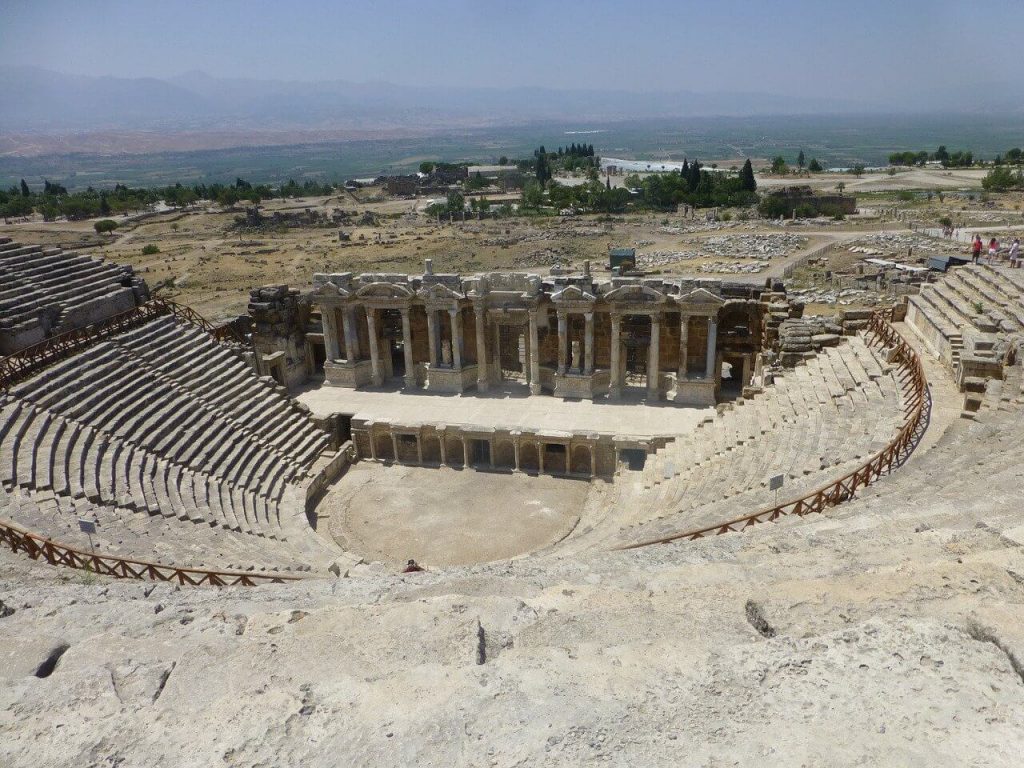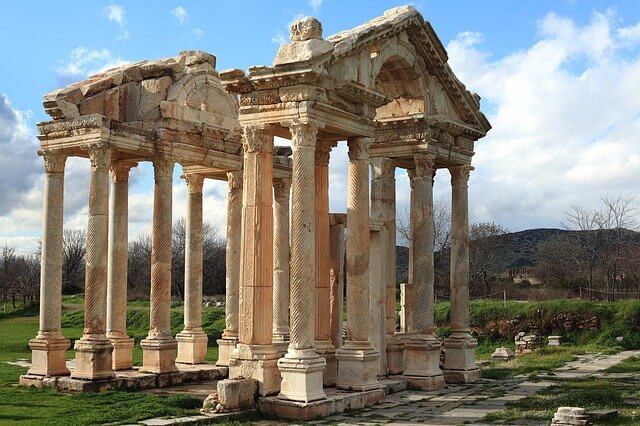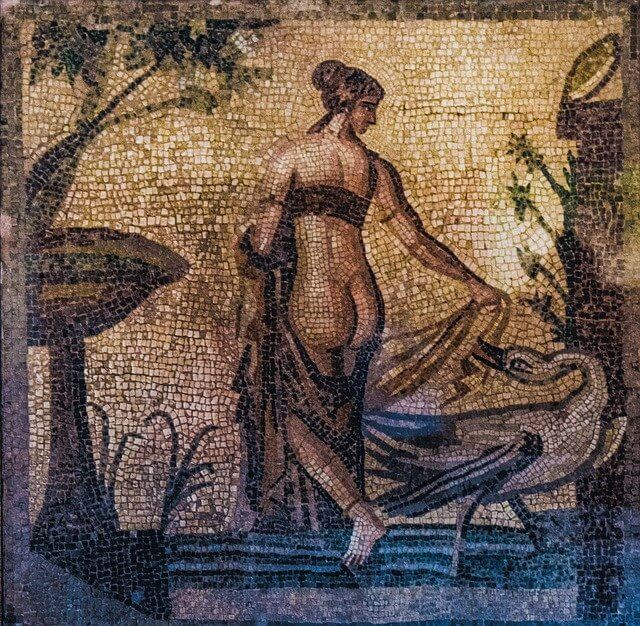Greek civilization has had a significant impact on Western culture, and its legacy can still be felt today. This post explores 10 key characteristics of Greek civilization, including its art, literature, philosophy, and politics.
The Greek civilization was located on the island of Crete, southeast of the Peloponnese. Near the year 2100 BC the Achaeans, a traditionally warrior town, invaded and subdued the Cretans (original people of this island). Thus the Minoan civilization began to develop.
Later Achaeans spread throughout the peninsula. Later the civilization expands towards the south of Italy and western coast of Asia minor. These two places are known as Magna Grecia. The inhabitants of this ancient civilization called themselves Hellenes.
The Greek civilization stood out for its great development of architecture and sculpture. It is considered as the base culture of Western civilization given that the democratic structure as we know it today is part of it. This culture had a great influence on the Roman Empire. Next, and in summary form of the Greek civilization, we expose the main characteristics.

Characteristics Of Greek Civilization
1. Geographic location
Greek civilization developed in a region known as the Hellenic Peninsula, located in the southeastern part of Europe. The peninsula is surrounded by water on three sides, with the Aegean Sea to the east, the Ionian Sea to the west, and the Mediterranean Sea to the south.
The Hellenic Peninsula is also home to a number of islands, including Crete, Rhodes, and Santorini. The islands were an important part of Greek civilization, as they allowed for maritime trade, provided natural resources such as timber and minerals, and served as centers of culture and learning.
The rugged and mountainous terrain of the Hellenic Peninsula also played a significant role in shaping Greek civilization. The mountains provided a natural barrier between different regions, which helped to create distinct city-states with their own unique cultures and identities. The mountains also made transportation difficult, which meant that each city-state had to be self-sufficient and rely on its own resources.
Despite the challenges posed by its geography, the Hellenic Peninsula offered a number of advantages for the development of Greek civilization. The mild climate and fertile soil allowed for the cultivation of crops such as olives, grapes, and wheat, which formed the basis of the Greek diet. The numerous harbors and ports along the coast provided easy access to the sea and allowed for the development of maritime trade.
Overall, the geographic location of Greek civilization played a significant role in shaping its development and influencing its culture and way of life.
2. Political-social organization
Greek civilization was organized into a collection of city-states, or poleis, each with its own unique political and social structure. While the exact form of government varied from one city-state to another, there were certain common features that characterized Greek political and social organization.
One of the most distinctive features of Greek political organization was the concept of citizenship. In most city-states, only adult male citizens were allowed to participate in the political process, and citizenship was restricted to those who could prove their ancestry and demonstrate their loyalty to the city-state. Women, slaves, and foreigners were generally excluded from political life.
Within the city-state, political power was often concentrated in the hands of a small group of wealthy landowners or aristocrats. These individuals controlled the government and made decisions on behalf of the community, often with little input from the general populace.
Despite this concentration of power, Greek political organization also gave rise to a tradition of democracy. Athens, for example, developed a system of government in which citizens could participate in the legislative process and have a say in decision-making. This democratic tradition would later influence the development of political systems in other parts of the world.
In addition to its political organization, Greek civilization was characterized by a complex social hierarchy. At the top of the social ladder were the aristocrats, who held significant power and wealth. Below them were the free non-aristocratic citizens, who were still relatively privileged but had less power than the aristocrats. Finally, at the bottom of the social hierarchy were the slaves, who had no rights and were considered property.
Despite the rigid social hierarchy, Greek civilization also had a tradition of social mobility. Wealthy individuals could sometimes buy their way into the aristocracy, while talented and successful individuals could rise through the ranks to achieve greater status and influence.
Overall, Greek political and social organization was complex and multifaceted, with a mix of aristocratic and democratic traditions, a rigid social hierarchy, and a tradition of social mobility.
3. Education
As for education, this civilization was a pioneer with respect to other ancient cultures. Although education was private, there were also public education centers where men could access to learn to read and write. The girls also had access to a type of education based on arithmetic, a science that this civilization remarked as of great importance.

4. Feeding
The diet of ancient Greeks was based on the Mediterranean triad of wheat, olive oil, and wine. These staples were supplemented by a wide variety of fruits, vegetables, nuts, legumes, fish, and meat.
Bread was a fundamental part of the Greek diet, and it was made from a variety of grains including wheat, barley, and rye. Olive oil was also a crucial component of the Greek diet, and it was used for cooking, as a condiment, and for medicinal purposes. Wine was also widely consumed and considered an important part of social and religious gatherings.
Fruits and vegetables played an important role in the Greek diet as well. Grapes, figs, pomegranates, and olives were among the most common fruits, while vegetables such as eggplant, onions, and garlic were staples. Greeks also ate a variety of nuts and seeds, including almonds, pistachios, and sesame seeds.
Seafood was another important source of food for the Greeks, particularly in coastal regions. Fish such as tuna, mackerel, and sardines were commonly consumed, as were other seafood delicacies like octopus, squid, and shrimp.
Meat was not as widely consumed in ancient Greece as it is in many modern Western societies. However, when it was consumed, it was typically in the form of lamb or goat. Beef was considered a luxury item and was only consumed by the wealthy.
Overall, the Greek diet was based on a wide variety of fresh, whole foods that provided a balance of nutrients and flavors. This diet, combined with an active lifestyle, helped to promote good health and longevity among ancient Greeks.
5. Art
Ancient Greek art is characterized by its focus on beauty, balance, and proportion. Greek artists worked in a variety of media, including sculpture, painting, pottery, and architecture.
Greek sculpture is perhaps the most famous aspect of ancient Greek art. Sculptures from this period often depicted idealized human figures, with an emphasis on muscularity and proportion. These sculptures were typically made from marble or bronze and were used to decorate public buildings and temples.
Greek pottery is another important aspect of ancient Greek art. Pottery was used for a variety of purposes, including storage, cooking, and drinking vessels. Greek pottery was often decorated with intricate patterns and scenes from mythology, and it was highly prized both for its practical and aesthetic value.
In addition to sculpture and pottery, ancient Greek art also included painting. Unfortunately, very little of this art has survived to the present day, but it is believed that Greek painters often depicted scenes from mythology and everyday life.
Finally, ancient Greek art also included architecture, with some of the most famous examples being the Parthenon in Athens and the Temple of Zeus in Olympia. These buildings were characterized by their use of classical design elements such as columns, pediments, and friezes, and they were often decorated with sculptures and other works of art.
Overall, ancient Greek art was characterized by its emphasis on beauty, balance, and proportion, and it had a profound influence on later Western art movements.
6. Medicine
Medicine in ancient Greece was based on a combination of observation, intuition, and superstition. Greek physicians believed that disease was caused by an imbalance of the four humors: blood, phlegm, yellow bile, and black bile. It was believed that restoring this balance was the key to treating illness.
Greek medicine was heavily influenced by the work of Hippocrates, who is considered the father of Western medicine. Hippocrates emphasized the importance of observation and diagnosis, and he believed that physicians should focus on treating the whole patient rather than just the symptoms of a particular disease.
One of the most famous aspects of ancient Greek medicine was the use of herbs and plants to treat illness. Greek physicians believed that many illnesses could be treated with natural remedies, and they used a wide variety of herbs and plants in their treatments. Some of the most commonly used herbs included chamomile, lavender, and mint.
In addition to herbs and plants, Greek physicians also used a variety of other techniques to treat illness. These included bloodletting, massage, and dietary changes. Surgery was also sometimes used, although it was considered a last resort and was often performed by non-physicians.
Despite its limitations, ancient Greek medicine was an important precursor to modern medicine. Many of the concepts and techniques developed by ancient Greek physicians, such as the importance of observation and diagnosis, are still used by doctors today.
7. Writing
This civilization places great emphasis on writing, from which it derives that there is much information about them. Anyway (and paradoxically) it should be noted that the type of cultural transmission of that civilization was not written but rather verbal.
8. Religion
The Greeks were polytheists, that is, they believed in the existence of many gods. These gods lived on Mount Olympus. They could marry human women and thus create semi-mortal beings. In this way the gods constantly intervened in the daily life of the Greeks creating friendships or enmities with mortals.
9. The legend of the Minotaur and the labyrinth
It is believed that the name of this civilization (monoecious civilization) derives from King Minos. Minos was the son of the goddess Europa and Zeus. In an opportunity Minos receives a gift of Poseidón (God of the sea and brother of Zeus). This gift was a beautiful white bull. Poseidon’s goal was for Minos to offer him as a sacrifice for him. But Minos decides to stay with the beautiful animal and offers in sacrifice to another bull.
When Poseidón finds out what happened, he becomes enraged and decides to punish Minos, bewitching his wife, Pasífae. After the spell Pasiphae began to have uncontrollable sexual desires for the bull. She, in her excessive desire to be possessed by the bull, goes to Daedalus, Greek inventor who makes a cow-shaped armor. From this union is born a creature with a human body and head of a cow that gave rise to the minotaur.
By this legend in Crete and other areas of Greek civilization they worshiped bulls and minotaurs.

10. Philosophical thought
Along with sculpture and architecture, another of the great contributions of this civilization was philosophical thought. It began approximately in the 6th century BC and ended in 30 BC. It is divided into 4 stages. This thought was based on the exaltation of the role of reason and knowledge.
Cosmological period It was based on rational thinking or logos. Thales of Miletus is the representative of this period and is considered by Aristotle as the first philosopher.
Anthropological period Here the contribution of Socrates was highlighted. For him, knowledge does not serve as a simple accumulation of information. Socrates is known for his oratorical power. They will focus on ethics, politics, rules, laws and society.
Methodological period. Here the great representatives were: Plato and Aristotle. To this period the conception of the great philosophical contributions is attributed to him.
Hellenistic period. Your concern is basically ethical issues.